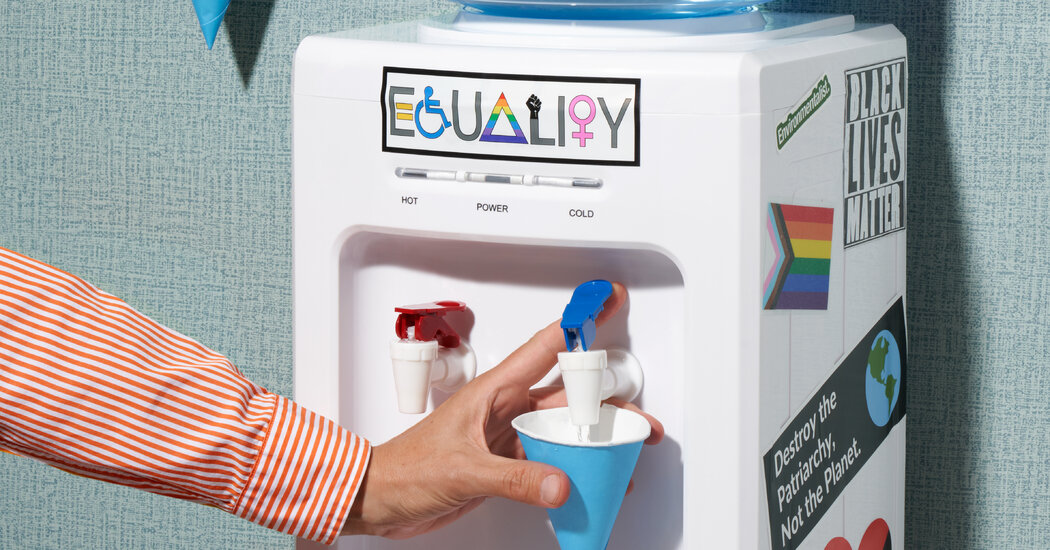Send questions about the office, money, careers and work-life balance to workfriend@nytimes.com. Include your name and location, or a request to remain anonymous. Letters may be edited.
Generation Zeal
I work for a health care nonprofit, and there have been some clashes among the five generations in our work force. For example, we have a Gen Z employee who holds passionately strong views in favor of antiracism, anticapitalism, anti-establishment and anti-colonialism. These views are not necessarily the issue, and in some cases are well aligned with organizational values.
However, this person has been alienating colleagues because of how she communicates about these views. She sends strongly worded emails, shares unsolicited links to resources and posts signs in break areas that align with her views. She can come across as self-righteous, judgmental and at times naïve. Folks will sometimes walk away from interactions with her feeling uninformed or stupid. This is her first job post-higher education. When you’ve been in the work force for a bit, you tend to learn that not everyone in the workplace shares the same views and that is OK. How can we balance her desire for self-expression, advocacy and activism, and also stay focused on the tasks at hand, as well as maintain professional boundaries and a positive working environment for all?
— Anonymous
I’m not sure it’s only a generational issue that you’re facing with your Gen-Z employee. She is clearly passionate about social justice, and I am glad your organization is willing to create a space where she can bring her whole self to work. But she also needs guidance about how and when to bring her advocacy efforts into the workplace, how to meet her professional responsibilities and how to respect the boundaries of others. Sit down with her and share what you wrote in your letter. Tell her that you aren’t trying to change her, but that she is not sharing her views in a vacuum; if she wants people to be respectful of her beliefs, she has to also respect those of others. She also needs to recognize that not everyone shares her passion or wants to discuss these issues in the workplace. You are her colleagues, not her acolytes. While we can and should learn from one another, our every interaction need not be so intensely didactic. And finally, she was hired to do a job, and it’s important that she not lose sight of that.
Remote Etiquette
I lived in California for eight years until my brother was diagnosed with cancer and I decided to move to Arizona to help care for him. I had been working in a new role for about six months when my brother was diagnosed, but my company offered to let me work remotely.
I return to California for work about four or five times a year. Recently, on a Zoom call with co-workers, there was discussion about happy hour and making sure to “have fun” with my co-workers outside work when I’m in California. I like to use these trips, in my non-working hours, to visit old friends and family. I don’t want to spend time with co-workers outside normal business hours, but I feel bad saying “no” since the company is paying for my flight. Am I more obligated to attend these social gatherings because my job is paying for travel? Is it OK to be honest and say I’d rather keep my co-worker time to office hours or should I just lie and say I’m busy every night?
— Anonymous
You are only obligated to do your job when you travel to California. They are paying for your flight because you are going there for work. They are not, in doing so, staking a claim on all your free time. I suspect your colleagues are trying to make you feel welcome and to offer you options for socializing in case you don’t know anyone in the area. You certainly could be honest and say you don’t want to hang out, but that might create unnecessary tension. Another version of the truth is that you already have evening plans while you are there but very much appreciate the generous invitation.


